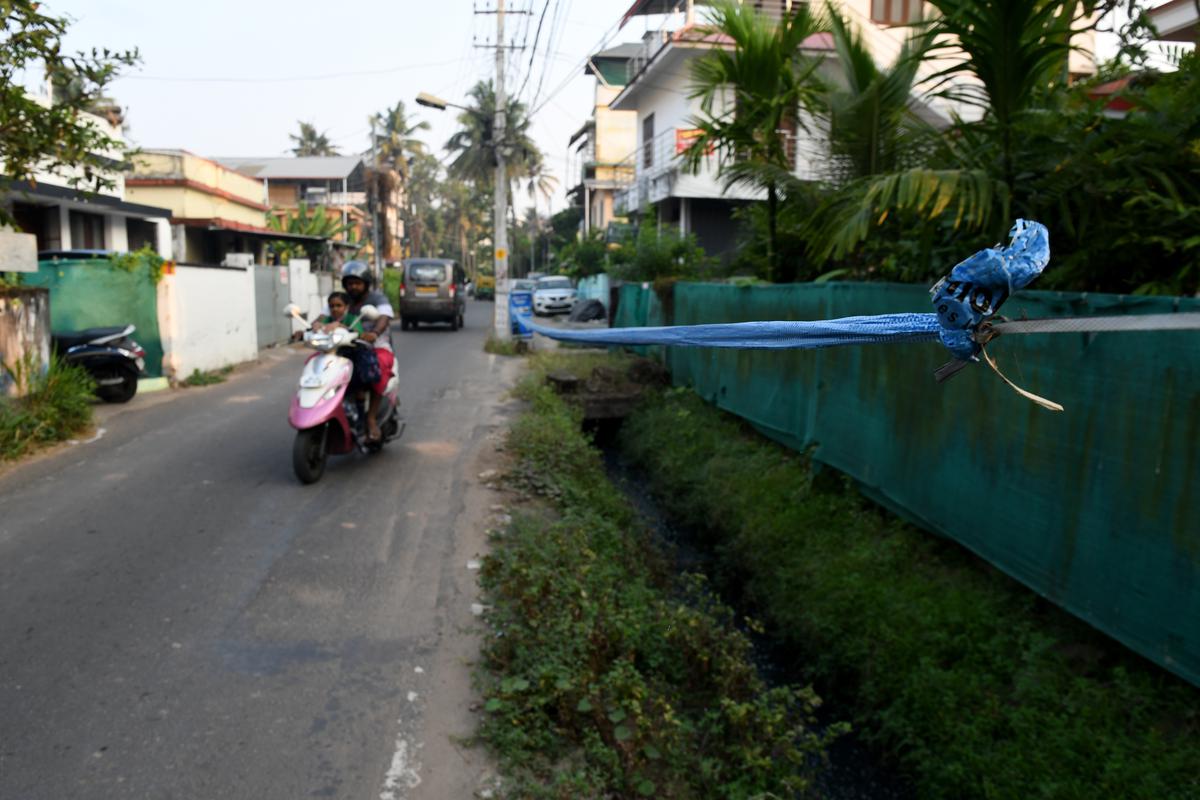[ad_1]
The roads on either side of Elamkulam Metro station on SA Road have become highly accident prone due to faulty road engineering, encroachments by vendors, haphazard parking, and instances of rash driving. A young two wheeler rider lost his life here in an accident on Thursday night.
| Photo Credit: H. VIBHU
The district-level Road Safety Council (RSC) met an average of just once every year since 2018, barring in 2021 when it met twice, even as accidents, traffic bottlenecks due to faulty road engineering, and problems like dangling cables increased in Ernakulam city and suburban towns.
This, and the slew of decisions taken at its meetings that ought to be implemented, have called into question the effectiveness of the body that is chaired by the District Collector, has the Regional Transport Officer (RTO) as member secretary, and the District Police Chief, Executive Engineer concerned of PWD (NH) PWD (Roads) wings as ex-officio members and a road safety expert recommended by the government as member, said Raju Vazhakkala, who filed an RTI query seeking details of the RSC’s functioning.

Civic agencies have not covered or barricaded the open drain on Paradise Road near Vyttila Janatha Junction even after incidents of children, pedestrians falling into drains being reported.
| Photo Credit:
H. VIBHU
“That the Council met an average of just once every year during the past years speaks volumes of the importance that has been given to safety of road users, at a time when there is a phenomenal increase in number of vehicles and the congestion they create,” he added. The answer to the RTI query said the Council did not receive road-safety funds during the time frame and that it is up to the departments concerned to implement the decisions it took.
Sources in the MVD said efforts are on to streamline the body’s functioning and to meet more often. While seeking the cooperation of all stakeholders, including motorists and pedestrians, to effectively reduce road accidents, the Ernakulam DCP (Law and Order, Traffic) S. Sasidharan said the Council has prioritised among others, pedestrian safety and the need to weed out encroachments and unauthorised parking.
“The tightening of enforcement in the wake of the recent spate of private-bus accidents and the popularising of the WhasApp number (62381 00100) through which members of the public can share details of traffic rule violations, obstructive parking etc., are yielding results. There is urgent need to improve civic sense among motorists and other road users. A survey has been done to identify spots where surveillance cameras are needed. Their installation, and closer monitoring will help intercept blatant rule violators,” he added.
Citing the need for the RSC to get its act together, city resident K.E. Joy, who retired as SP and served as Assistant Commissioner of Police (Traffic) in the city, said there is most often little follow up of decisions taken at its meetings. “Moreover, there is no certainty of punishment, since hardly five per cent of the road safety violators are penalised. There is urgent need to enforce lane discipline, modernise the enforcement machinery and to widen junctions and bottlenecked bridges such as the one at Katrikadavu. On their part, road-owning agencies must consult the traffic police while designing, renovating junctions. The RSC must take note of all this,” he said.
[ad_2]
Source link


